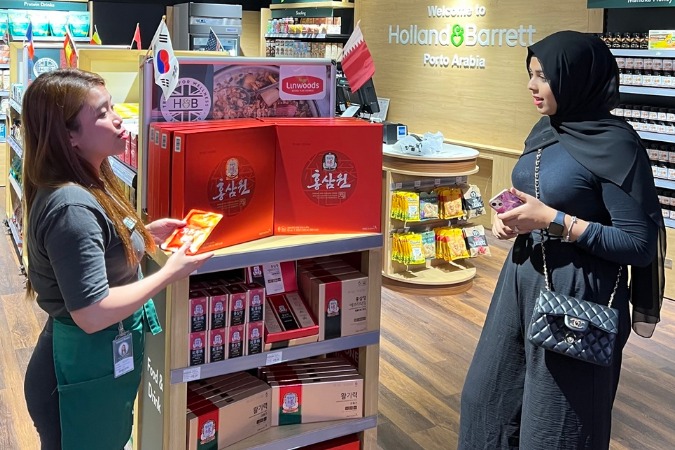South Korea’s health supplement exports have seen a significant increase, largely driven by the purchasing behaviors of Chinese millennials and Generation Z. In the first 20 days of September 2024, exports of health functional foods, including products like red ginseng tonics and vitamins, reached an impressive $43.9 million, marking a 40.2% rise compared to the same period last year, according to data from the Korean alternative data platform KED Aicel. This surge follows a modest increase of 1.6% in May and a 26.5% rise in August.
Korea’s health supplements have gained substantial traction in the Chinese market. Shipments to China totaled $57.1 million in the third quarter up to September 20, reflecting a remarkable 65% increase year-on-year. This figure represents one-third of South Korea’s total health supplement exports, which amounted to $176.3 million during the same period. Over the past five years, South Korea’s outbound shipments of health supplements have nearly doubled, growing from $345 million in 2019 to $683 million last year.
Rising Demand from Younger Consumers
Brands like KT&G Corp.’s health food subsidiary, Korea Ginseng Corp. (KGC), known for its popular Hong Sam Won red ginseng drink, have particularly benefited from this trend. Exports of Hong Sam Won to China skyrocketed by 158% in 2024 compared to the previous year. Other original design manufacturers (ODM) such as Novarex Co., Kolmar BNH Co., and Suheung Co. have also reported unprecedented overseas sales, often through collaborations with international brands. For instance, Novarex, which supplies products to the US group GNC, recorded an 81% year-on-year increase in second-quarter exports, reaching 46 billion won ($34 million).
The growth is largely attributed to younger Chinese consumers, who are increasingly turning to e-commerce platforms like Alibaba-owned Taobao and Tmall for their shopping needs. According to a report from a Chinese consulting firm, beauty-related nutritional supplements sold through these platforms reached 13.1 billion yuan ($2.6 billion) in 2023, reflecting a 22% increase from the previous year. Furthermore, China’s overall health supplement market was valued at 347.5 billion yuan in 2023, and global research firm MarketsandMarkets anticipates an annual growth rate of 8.3% through 2028.
Perceptions of Safety and Cultural Influence
Analysts suggest that South Korea is well-positioned to capitalize on this trend, bolstered by perceptions of safety associated with its health foods and the cultural influence of K-pop. A survey conducted by KOTRA, the Korea Trade-Investment Promotion Agency, revealed that 83% of Chinese consumers in their 20s consider Korean supplements to be “highly safe,” compared to 67% among those in their 30s. Approximately one in five respondents cited Korean popular culture as a motivating factor for their purchases.
In 2024, Korea ranked fourth among the sources of health supplement imports to China, with shipments valued at $267 million, a 19% increase from the previous year. China’s total imports of health functional foods reached $61 billion, reflecting a 15.8% increase year-on-year.
“Generational change and the shift to e-commerce are reshaping China’s health supplement market,” said Park Sun-young, a research fellow at the Korea Investor Relations Service. “For Korean companies, rapid adaptation in product development and marketing will be essential.”
As the demand for Korean health supplements continues to rise, the industry is poised for further expansion, driven by the influence of younger generations and the ongoing evolution of retail practices in China.








































































